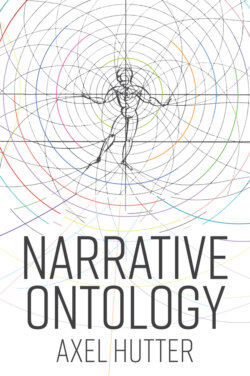Читать книгу Narrative Ontology - Axel Hutter - Страница 32
Selfhood as Self-Understanding
ОглавлениеIn the story of Jacob, the narrative sounding board, which is caused to resonate through the isolated events on the surface and which links them meaningfully through a common deeper dimension, acquires a first concrete elaboration. The protagonists of the narrative are shaped in their own self-understanding by precisely that fundamental distinction between meaning and being, significant model and temporal–individual repetition ‘in the flesh’, which for Thomas Mann is the principle of all narration and thus also the principle of narrative understanding. This principle is not only a principle of readings and texts, but in the first instance a life principle.
Thomas Mann makes this explicit in his talk ‘Freud and the Future’, which contains in an important part a commentary on the Joseph novel.4 He speaks of ‘the schema in which and according to which the supposed individual lives, unaware, in his naïve pride in being first and unique, of the extent to which his life is but formula and repetition and his path marked out for him by those who trod it before him. His character is a mythical role which the actor … plays in the simplicity of illusory uniqueness and originality, that he, as it were, has invented it all himself, with a dignity and security of which his supposed unique individuality in time and space is not the source, but rather which he creates out of his deeper consciousness in order that something which was once founded and legitimized shall again be represented and once more for good or ill, whether nobly or basely, in any case to conduct itself, in its own way, according to models’ (1947, 374–5).
It belongs essentially to the form of a genuine human life that it first gains its genuine reality where it ‘plays’ – that is, where it repeats – past models by interpreting and varying them, and then presents them on the stage of its present. If one misunderstands oneself exclusively as a unique individual, then one lives, according to Thomas Mann, clueless in one’s ‘naïve pride in being first and unique’. One first gains one’s own reality and character through the specific ‘role’ that one also plays when one plays ‘in the simplicity of illusory uniqueness and originality’.
Human action and speech is only possible and understandable because it repeats coined models. Literally unique action or speech is impossible for human beings because it is not understandable: ‘Actually, if his existence consisted merely in the unique and the present, he would not know how to conduct himself at all; he would be confused, helpless, unstable in his own self-regard, would not know which foot to put foremost or what sort of face to put on. His dignity and security lie all unconsciously in the fact that with him something timeless has once more emerged into the light and become present; it is a character; it is native worth, because its origin lies in the unconscious’ (375).
Accordingly, the life of the protagonists in the original story re-narrated by the Joseph novel means understanding their own being ‘of the flesh’ as the citing repetition of a coined model. One can therefore say that the condition of the possibility of being able to narrate them in a distinguished way consists precisely in that they understand their own being in the sense of a narrative ontology. Their mode of understanding, their attentiveness or inattentiveness to the meaning of the stories in which they live, makes them into what they are. Each makes explicit, in his or her own way, that human beings are precisely what they understand themselves to be.
Yet human self-understanding, which defines human selfhood, articulates itself concretely in the narrative unity of meaning of the story, which one repeats in one’s own self-understanding in various ways, thereby gaining an understanding of one’s own life story. This means the narrative decentring that one achieves by realizing the importance of the question who one actually is – that is, in whose ‘footsteps’ one walks – is far from putting into question the reality of the human I; on the contrary, it is in this questioning that the human I gains in the first place the narrative form of reality that is characteristic of human selfhood, and that relates each one’s own present to a particular past in order to recollect it and understand it as the reality of one’s own life story.
The decisive point of the Joseph novel is that the narrative view of human identity is not an arbitrary external perspective on the human I. Rather, it describes the inner perspective of those distinguished persons whom the novel narratively brings into view. Esau and Jacob, to stay with these two ‘pious men’, understand themselves in the double-layer manner mentioned above: on the one hand as a small I in the being of the here and now, and on the other hand as a great I in the narrative fabric of meaning that reaches far back into the past, and likewise far ahead into the future.
